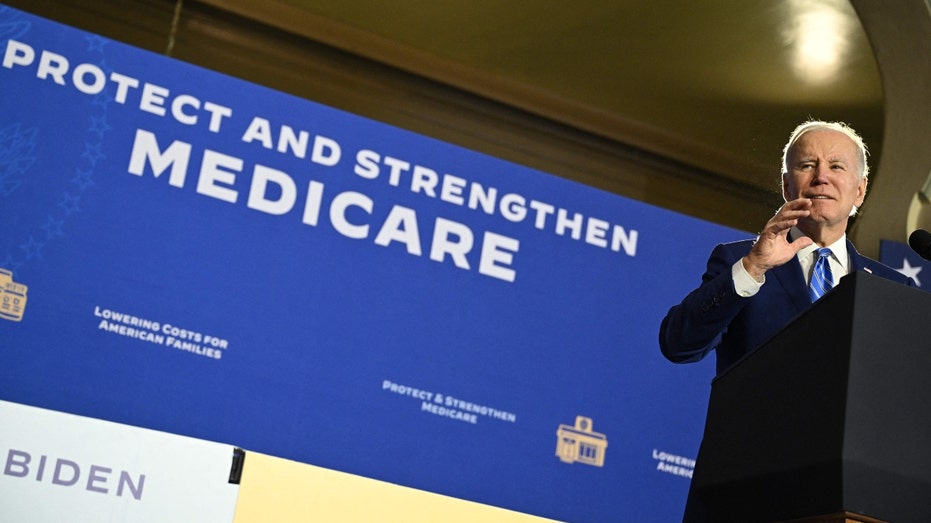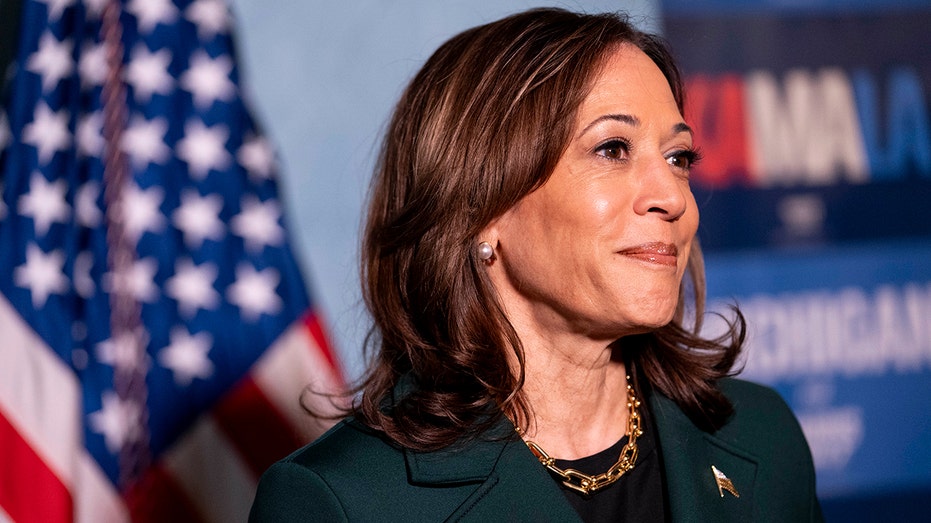Biden-Harris Medicare cuts are harming seniors with coverage losses, premium hikes: former congresswoman
Republicans must come up with a 'coherent' health care agenda to avoid socialized medicine, expert warns
Nearly 1 million Medicare users impacted by data breach
Kurt ‘CyberGuy’ Knutsson joined 'FOX & Friends' to discuss what Americans should be concerned about with the data breach and Apple's bold new move toward AI.
Cuts to Medicare Advantage by the Biden-Harris administration could lead to fewer options and higher costs for 33 million seniors, former Rep. Ann Marie Buerkle, R-N.Y., warns.
In an interview with FOX Business, the former New York congresswoman urged her fellow Republicans to formulate a "coherent health care agenda" that tackles issues like drug approval processes and billing transparency to avoid a socialized medicine model.
"And one of the pieces of that is to look at what's driving up the cost of health care," Buerkle, who worked as a nurse prior to practicing law and entering politics, told FOX Business. "Certainly, drugs are modernizing and streamlining the FDA, getting more generics and bioidenticals available in the marketplace — that would help the cost of things, looking at any dishonest billing, because we've seen that so many times."
EXPERT SAYS MEDICAID, MEDICARE REFORM IS CRITICAL AND CAN SAVE $2.1 TRILLION

President Biden speaks about his plan to protect and strengthen Social Security and Medicare, as well as lower health care costs, at the University of Tampa in Florida on Feb. 9, 2023. (Mandel Ngan/AFP via / Getty Images)
Hospitals are merging with larger health care systems because they can't sustain themselves financially — creating a sort of hospital conglomerate — Buerkle added, which leads to increased costs and deceptive billing practices. She said Congress needs to ensure that these hospitals are operating transparently and that their billing aligns with the services provided.
The "bigger picture," she said, is Democratic politicians like Vice President Kamala Harris who openly advocate for a "Medicare-for-all" system.
"Medicare-for-all is socialized health care," she said. "I don't think anyone in this country, at least a fair amount of American people, wants to move to socialized health care. That's government-run health care."
Open enrollment for Medicare seniors began on Oct. 15, bringing significant changes for the millions of Americans enrolled in Medicare Advantage (MA) plans. MA plans differ from Original Medicare (OA) in that they often have lower premiums and extra benefits, but some restrictions to network care. OA allows patients to choose any doctor or hospital that accepts Medicare nationwide.
'HIGHWAY ROBBERY': CRITICS BLAST VP HARRIS FOR 'VIOLATING' MEDICARE TRUST FUND

Vice President Kamala Harris answers questions from the press before a town hall. (Sarah Rice / Getty Images)
Buerkle cited analysis from the Centers for Medicare & Medicaid Services (CMS) that reported approximately 1.3 million beneficiaries enrolled in MA plans will find those options unavailable in 2025, forcing them to switch their coverage. The overall number of general enrollment MA plans has decreased by 6% compared to 2024, with over 60% of Medicare-eligible Americans living in counties where plan options have diminished.
Notably, nine insurers have stopped offering any MA plans for the upcoming year.
Seniors in 19 states are experiencing average premium increases of over 10%, impacting states such as Alabama, Georgia and New York, the data showed.
The number of $0 premium plans has fallen by 5%, and around 243,000 beneficiaries will have to pay premiums in 2025 for plans that were previously free.
Additionally, Buerkle noted, maximum out-of-pocket costs are set to rise, with fewer plans offering limits of $3,500 or less, while the share of plans with out-of-pocket costs exceeding $5,000 has increased from 46% in 2024 to 52% in 2025.
NEARLY 1M MEDICARE BENEFICIARIES POTENTIALLY AFFECTED AFTER DATA BREACH

Medicare card photo illustration. (iStock)
Overall, Medicare Advantage seniors, already struggling with inflation, will face a median increase of $400 in out-of-pocket expenses next year.
"The Biden-Harris administration has attacked Medicare Advantage because it promotes private sector innovation over public sector dependence, so they're doing everything in their power to cut it and force seniors into Medicare-for-all," Ryan Walker, executive vice president of Heritage Action for America, told FOX Business.
In a move critics say is designed to shield the Biden-Harris administration from election fallout, the administration was discovered this year to have leveraged taxpayer funds to mask upcoming increases in Medicare premiums.
GET FOX BUSINESS ON THE GO BY CLICKING HERE
Under the Inflation Reduction Act, which was intended to cap out-of-pocket drug costs for Medicare beneficiaries, insurers are poised to significantly hike monthly premiums, with average bids for Part D plans expected to triple by 2025.
In response to potential voter backlash, the CMS rolled out a three-year "demonstration project" to subsidize these premiums, aiming to keep them artificially low.
The nonpartisan Congressional Budget Office released a fiscal analysis of the Biden-Harris administration’s Medicare Part D Premium Stabilization Demonstration Program in October, estimating it could cost taxpayers over $21 billion over three years.
FOX Business has reached out to CMS for comment.





















